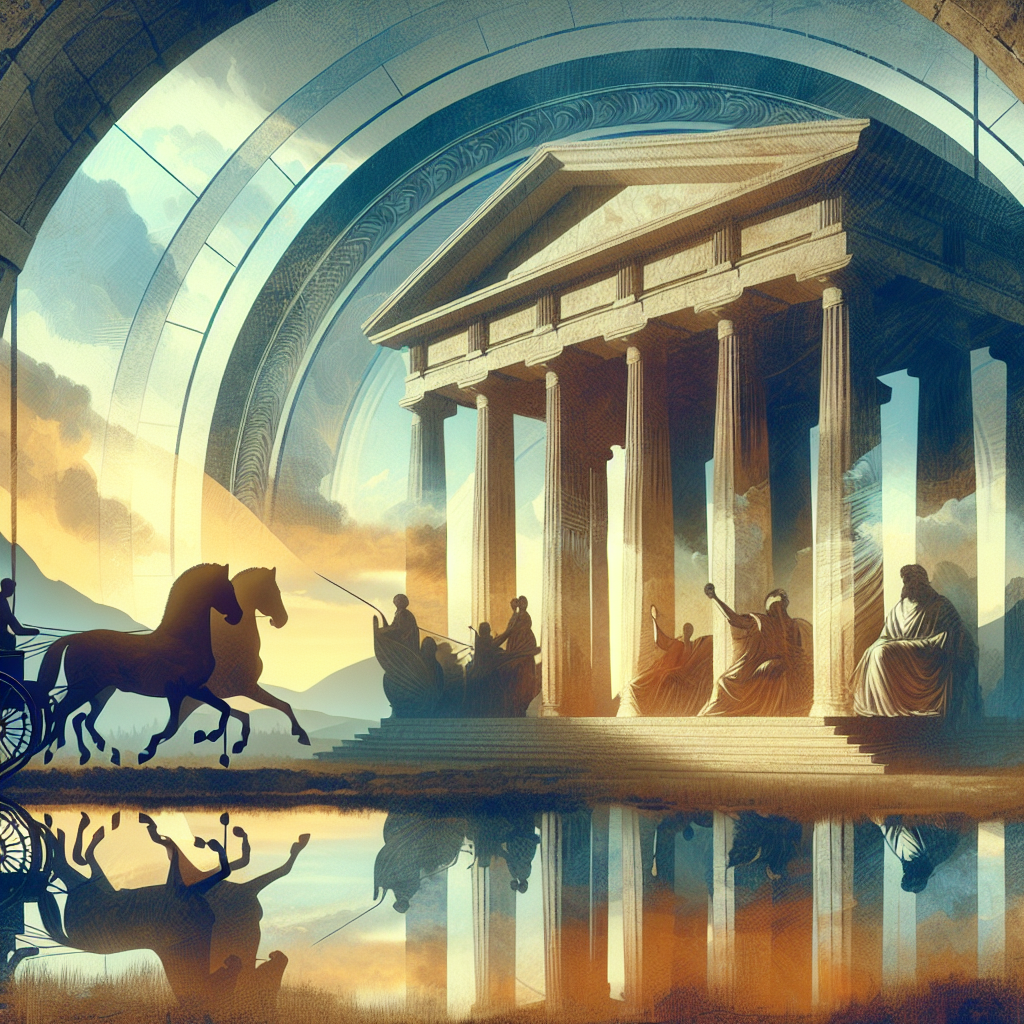Ben-Hur: A Tale of the Christ by Lew Wallace is a seminal masterpiece that has entrenched itself in the annals of classic literature. First published in 1880, this novel has not only captivated readers with its epic narrative but also contributed significantly to the literary, cultural, and social landscapes of its time and beyond. In the context of Lew Wallace’s body of work, Ben-Hur stands out as a monumental achievement that brilliantly merges historical fiction with poignant themes of faith and redemption.
Introducing the Book and Its Significance
Ben-Hur is a historical epic that weaves a rich tapestry of adventure, political intrigue, and spiritual enlightenment. Set in ancient Judaea during the time of Jesus Christ, the novel chronicles the life of Judah Ben-Hur, a Jewish prince who falls from grace due to the betrayal of his childhood friend, the Roman Messala. From a prosperous nobleman to a galley slave, Judah’s journey is one of physical and spiritual transformation.
The novel’s significance lies not only in its compelling storyline but also in its exploration of universal themes such as justice, revenge, and forgiveness. Wallace, who was a Union general in the American Civil War, imbued the narrative with profound insights into human nature and resilience, making it a timeless work that continues to resonate with readers.
Main Themes and Character Development
At its core, Ben-Hur grapples with themes of faith, revenge, and redemption. The transformative power of faith is a central theme, manifesting in Judah’s encounters with Jesus Christ. Wallace ingeniously integrates the life of Christ into the narrative without it overshadowing Judah’s personal journey. This seamless integration highlights the influence of Christ’s teachings on Judah’s path from vengeance to forgiveness.
Revenge drives much of the plot, initially propelling Judah to seek retribution against Messala. However, as the story unfolds, Judah’s character undergoes significant development, moving from a desire for revenge to a pursuit of justice, and finally to a profound understanding of forgiveness. This evolution is poignantly illustrated in Judah’s ultimate choice to forgive Messala, which marks his spiritual rebirth.
Narrative Techniques
Wallace employs a range of narrative techniques that enrich the storytelling. His vivid descriptions and meticulous attention to historical detail create a richly immersive setting. Chapters like the famous chariot race in Part V stand out for their dynamic and high-stakes action, showcasing Wallace’s ability to craft scenes of intense drama and suspense.
Another notable technique is the shifting narrative perspective. While the story predominantly follows Judah, Wallace occasionally shifts focus to other characters, providing a multifaceted view of the historical and sociopolitical landscape. This multiplicity of perspectives deepens the reader’s engagement with the narrative and enhances the complexity of the story.
Detailed Examples from Key Chapters
One of the most iconic chapters is the chariot race, where Judah competes against Messala. This chapter not only exemplifies Wallace’s talent for creating action-packed sequences but also serves as a climactic point in Judah’s quest for revenge. The race symbolizes the conflict between the oppressed and the oppressor, with Judah’s victory representing a momentary triumph of justice.
In another significant chapter, Judah’s encounter with Jesus, as he is given water during a moment of despair, marks a pivotal point in his spiritual journey. This encounter subtly yet powerfully underscores the theme of faith, illustrating how an act of kindness can alter the course of one’s life. It is a moment of divine intervention that foreshadows Judah’s eventual path to redemption.
Cultural, Social, and Historical Contexts
Ben-Hur reflects the cultural and social contexts of the 19th century, particularly in its portrayal of religious themes and the struggle for justice. Wallace, influenced by his own tumultuous experiences during the Civil War, infused the novel with a quest for moral and spiritual clarity.
The novel also mirrors the historical context of its setting. Through Judah’s interactions with historical figures like Pontius Pilate and the depiction of events like the crucifixion, Wallace provides a vivid portrayal of the societal and political dynamics of ancient Rome and Judaea.
Legacy and Lasting Influence
Ben-Hur’s legacy is profound, both in literature and popular culture. The novel’s success paved the way for adaptations in various media, including stage plays, films, and television series. The 1959 film adaptation, starring Charlton Heston, remains one of Hollywood’s most celebrated epics, further cementing the story’s place in cultural history.
The novel’s exploration of timeless themes such as faith, redemption, and the human capacity for forgiveness continues to resonate. Its influence can be seen in contemporary works that grapple with similar issues, underscoring its enduring relevance.
Reflective Questions and Takeaways
As we reflect on Ben-Hur’s place in literature and its relevance today, several questions arise:
- How does Judah Ben-Hur’s journey mirror the personal and spiritual struggles we face in contemporary society?
- What lessons can we draw from Judah’s transformation from a desire for revenge to an embrace of forgiveness?
- In what ways does Ben-Hur challenge us to ponder the impact of historical narratives on our understanding of justice and faith?
Ben-Hur: A Tale of the Christ by Lew Wallace is more than just a novel; it is a profound exploration of the human spirit and its capacity for growth and redemption. Its rich narrative, complex characters, and evocative themes invite readers to delve deep into their own beliefs and values, making it a timeless classic that continues to inspire and enlighten.
Got more questions? Our personalized Book Explorer AI assistant is here to help. Click here to start a conversation!
[Advertisement]
Looking to find deeper meaning in the books you love? Discover how ANY book relates to positive biblical principles with Books and Scripture GPT‘ from BGodInspired.com. Click here to explore the connections that might surprise you!
[Advertisement]

